Project of nearly 150 offshore wind turbines off New York halted due to 'inflation' – but 'reset' comes amid claims the green energy is 'killing' whales
Two companies have halted plans to build 147 offshore wind turbines near New York, citing “inflation, interest rates and supply chain disruptions.”
Europe-based BP and Equinor have halted their joint 1,260-megawatt-gigawatt Empire Wind 2 project, which would cover more than 80,000 hectares of open sea – one megawatt of offshore wind can power around 500 homes.
The agreement, signed in 2022, stated that the companies would sell a megawatt hour for $107.50, but due to “unforeseeable economic forces”, BP and Equinor requested a price increase to $177.84/MWh.
The proposal was rejected, leading to the companies tearing up the contract.
However, many locals, activists and lawmakers are cheering the news, believing companies that blast the seabed with sonar are behind dozens of whales and dolphins over the past two years.
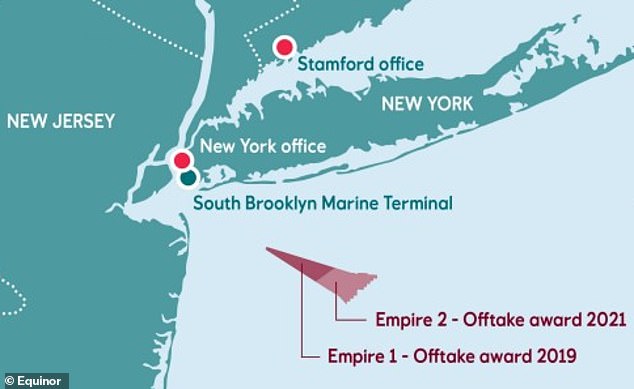
Europe-based BP and Equinor have halted their joint 1,260-megawatt-gigawatt Empire Wind 2 project, which would cover more than 80,000 hectares of open sea – one megawatt of offshore wind could power around 500 homes
Equinor said in a statement on Wednesday: “This agreement reflects changed economic conditions on an industry-wide scale and repositions an already mature project to continue development in anticipation of new offtake opportunities.”
New York Governor Kathy Hochul announced the state's 10-point action plan in October, outlining actions on renewable energy.
This tender includes three new offshore wind projects totaling more than four gigawatts and 23 large-scale onshore renewable energy projects totaling 2.4 gigawatts, and nearly $1 billion in combined public and private investments in the country's first offshore wind blade and nacelle production facilities .
Although the project has been paused, the companies insist that the move is a 'reset' and allows them to move forward with the Empire Wind 2 project.
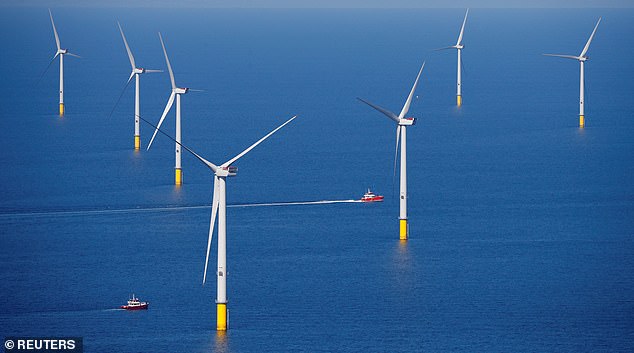

The agreement, signed in 2022, stated that the companies would sell a megawatt-hour for $107.50, but due to “unforeseeable economic forces”, BP and Equinor requested a price increase to $177.84/MWh (stock).
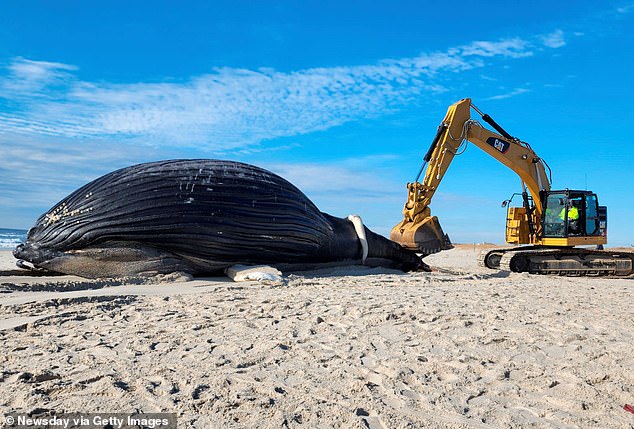

However, many locals, activists and lawmakers are cheering the news, believing that companies blasting the seabed with sonar are behind dozens of whales and dolphins over the past two years.
Equinor, a leading Norwegian wind energy developer and BP, formerly British Petroleum, is just one of more than six projects for the New York region.
Offshore wind energy is expected to play a major role in New York's plan to reduce carbon emissions by generating 70 percent of the state's electricity from renewable sources by 2030.
It is also a pillar of President Joe Biden's plan to decarbonize the U.S. power grid and fight climate change.
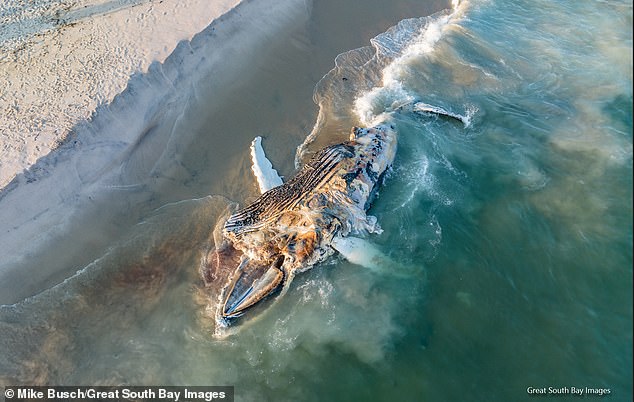

Such projects are seen as an economic boost, creating hundreds of jobs for locations. But they have also been blamed for mysterious deaths of whales and dolphins in recent years
However, there is only an operating wind farm owned by the Danish energy company Orsted; it started delivering power to homes last month.
Orsted also planned to develop the Ocean Wind 1 and Ocean Wind 2 projects off southern New Jersey, which would build 98 turbines 15 miles offshore.
Construction was scheduled to begin this fall and was expected to be operational in 2025, but Orsted announced cancellations for both projects in November.
The company cited “macroeconomic factors, including high inflation, rising interest rates and supply chain constraints” that led to the decision.
Such projects are seen as an economic boost, creating hundreds of jobs for locations.
But they have also been blamed for mysterious deaths of whales and dolphins in recent years.
“Another HUGE win for the whales (and New York taxpayers),” shared Robert Bryce, an author who focuses on energy and politics.
Data from the National Oceanic and Atmospheric Administration (NOAA) shows that in 2023, 11 humpback whales were found dead in New York, while nine were found dead in New Jersey.
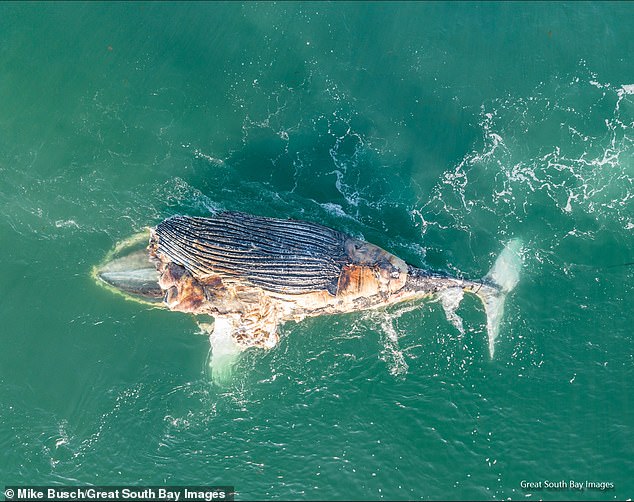

National Oceanic and Atmospheric Administration (NOAA) data shows that 11 humpback whales were found dead in New York in 2023
The reports begin in 2016 and bring New York to a total of 45 and New Jersey to 29.
The deaths recently caught the attention of comedian and actor Jim Breuer, a former star of Saturday Night Live, who told DailyMail.com that the rotting carcass on the beaches is “the root of all demonic evil: greed and money.”
“Sonar is the way these mammals communicate, so you paralyze them,” Breuer said.
“I'm tired of politicians and any humanitarian cause, ultimately their true cause is greed and the love of money and the power of money to take advantage of humanity as they slaughter marine life.”
Sonar is used to map the seabed for suitable windmill locations, but many believe the loud noise disrupts the movements of animals, sending them into boats or to shore.
Breuer has released a new documentary with director James Malin called 'Big Wind & The Incidental Take, a story about New Jersey, Green Energy & Dead Whales.'
The pair spoke with New Jersey residents, activists and lawmakers about the link between whale deaths and offshore wind farms.
Toms River resident Trisha DeVoe, conservation biologist and activist for Save our Whales, told DailyMail.com, “Over the past decade, from 2013 to 2022, the average number of humpback whales stranded in New Jersey annually was 2.6.
“In the 12 months from December 22 to date, 11 humpback whales have been stranded in New Jersey, more than four times the previous 10-year average.
“We hunted whales to near-extinction, and scientists estimate we are down to about 25 to 33 percent of historic pre-whaling numbers.
“Some scientists estimate that returning our whale populations to pre-whaling levels would sequester 1.7 trillion tons of carbon annually.”
DeVoe said she and many other New Jerseyans are calling for a halt to the projects until independent research can determine what is killing marine life.
